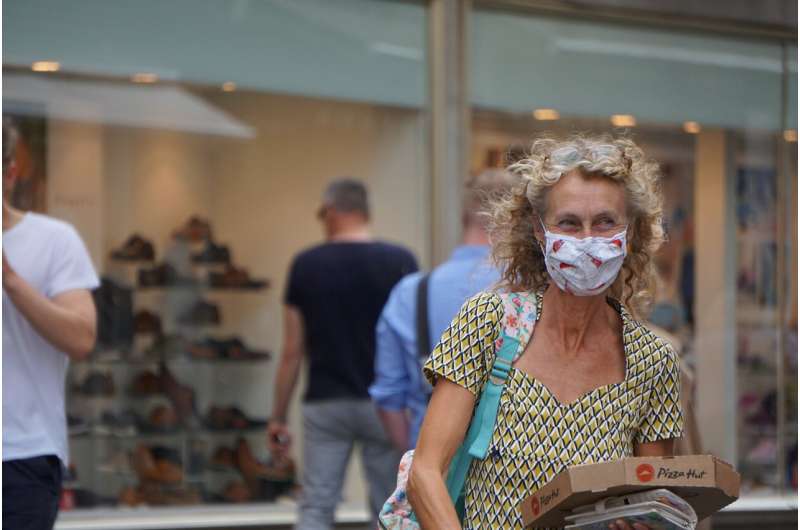If you trust politicians and scientists, then you likely socially distance yourself

To contain the COVID-19 pandemic by having as many as possible people adopt preventive measures, including social distancing and improved hygiene, it is crucial for public authorities to first figure out what makes the society change their everyday habits for the greater good.
A recent survey conducted by researchers at University of Cologne, Germany, and involving 661 adult German residents, identified a strong link between trust in politics and science and acceptance and adoption of protective behavior. Their study is published in the peer-reviewed, open-access scientific journal Social Psychological Bulletin.
The results of the survey highlight the urgent importance of both politicians and scientists to maintain and ideally strengthen their authority and trustability, and use them to inspire more people to be responsible and cautious in this time of a pandemic.
But how do you create trust?
The researchers note that trust in science has been linked to factors, such as education, science knowledge, use of traditional news and social media, and learning about replicable research findings. On these lines, the research team recommends that scientists refrain themselves from publishing potentially unreliable findings: a practice which has become quite common since the coronavirus outbreak.
However, while education and knowledge take a long time to build, and the current situation calls for immediate solutions, the researchers point to effective crisis communication as the best approach. Firstly, they urge for politicians and scientists to talk openly about what is known and unknown about the disease, while role models adopt the recommendations for fighting the pandemic, thus publicly setting an example to follow. Also, it is important that society sees a diverse range of experts unanimously speaking about the effectiveness of the recommended behaviors.
Additionally, it was found that men and younger people are less likely to accept and practice protective measures, which means that specially targeted health messages need to be devised for these particular groups.
"Because the implementation of protective measures is directly related to infection and fatality rates, strong efforts should be taken to ensure that trust in politics and science is not undermined, and that those who are trusted give valid and sound recommendations on how to protect oneself and others," say the researchers.
More information: Simone Dohle et al. Acceptance and adoption of protective measures during the COVID-19 pandemic: The role of trust in politics and trust in science, Social Psychological Bulletin (2020). DOI: 10.32872/spb.4315
Provided by University of Cologne




















